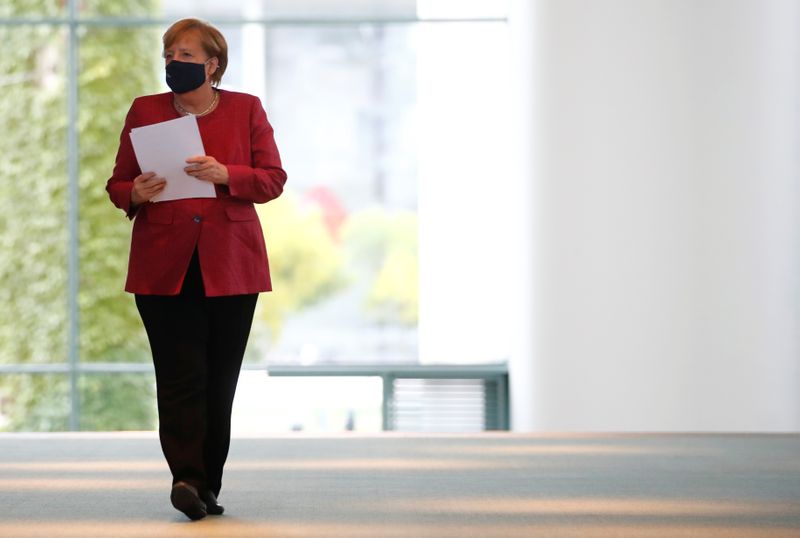BERLIN (Reuters) – Chancellor Angela Merkel said she and mayors from Germany’s 11 largest cities agreed on Friday to adopt stricter anti-coronavirus measures if infections exceed a threshold of 50 cases per 100,000 population in a week.
Restrictions could include tighter rules on mask-wearing, restrictions on private gatherings and stricter rules on buying alcohol, Merkel said, adding that her top priority was to avoid shutting down the economy and society again, as in the spring.
“These are the days and weeks that will determine in what shape Germany will get through winter in this pandemic,” Merkel told reporters. “Summer went very well overall, but we now see a picture that is cause for concern.”
Germany has so far managed to keep the number of cases and deaths lower than many of its neighbours but the number of new daily coronavirus cases has leapt in recent days, and some hospitals warned of staff shortages on Friday.
It was still possible to bring the pandemic under control i Germany, Merkel said, adding that she was aware the restrictions were painful.
“But I am also convinced that we are at a point where we have to be clear about what is important for us this autumn and winter, and where we have to prioritise, and my highest priority is – if at all possible – not to have to cut back economic and public life again as was necessary in spring,” she said.
Schools should stay open to the extent possible, she added.
Merkel and the mayors would meet again in two weeks to review whether the measures had been effective, she said, adding: “We have proven that we can stand together against the virus and we should do that again.”
(Writing by Paul Carrel, editing by Thomas Escritt)

























